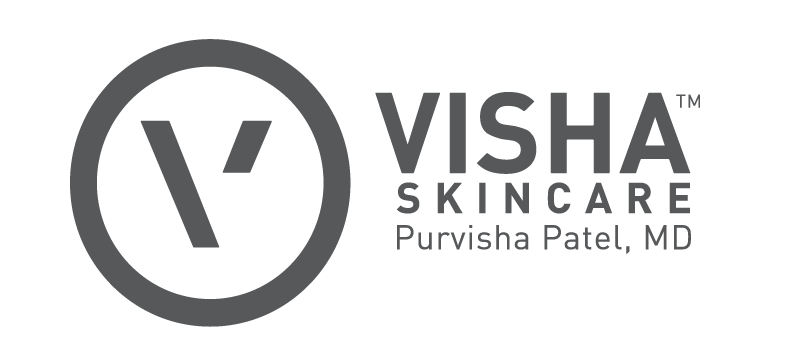 HelloGiggles posted "Increased Face Mask Wear Can Lead to Skin Irritation and Infection—Here’s How to Reduce Risk" featuring Dr. Purvisha Patel, and Visha Skincare.
HelloGiggles posted "Increased Face Mask Wear Can Lead to Skin Irritation and Infection—Here’s How to Reduce Risk" featuring Dr. Purvisha Patel, and Visha Skincare.
Face masks are essential to preventing the spread of the coronavirus pandemic, but it’s taking a toll on skin.
With the CDC’s recent recommendation that everyone wear face masks in public, more people are looking for face coverings—or making their own—in order to help flatten the curve. However, wearing face masks for extended periods of time comes with a risk of its own, with many people experiencing uncomfortable skin issues.
Here’s the dilemma: Face masks need to fit snugly on the wearer’s face, and must close tightly around the nose to ensure that they offer maximum protection. While those characteristics make it effective at filtering out airborne particles, the tighter the mask, the more frictional pressure is placed on the skin. According to a recent study published in the Journal of Wound Care from the University of Huddersfield in the United Kingdom, medical masks are causing inflammation and even pressure ulcers, a phenomenon which can lead to pain and infection.
Because of the occlusive nature of the mask, your breathing is trapped, creating a humid environment for your skin. “The wearers are sweating underneath the masks, and this causes friction, leading to pressure damage on the nose and cheeks,” says Professor Karen Ousey, one of the authors of the paper. “There can be tears to the skin as a result, and these can lead to potential infection.”
So what should you do if you’re experiencing irritation? If possible, Ousey suggests pressure from the mask to be relieved every two hours, and if you feel your mask rubbing, take it off as soon as it is safely possible.
Caring for the skin can also reduce the chances of pressure sores developing. First and foremost, it’s important to keep both the mask and your face clean. “Prior to putting on your mask, use a gentle cleanser that doesn’t contain potentially irritating topicals like acids and retinoids, as these can further irritate the skin,” advises Deanne Mraz Robinson, MD, FAAD, a board-certified dermatologist in Westport, Conn. This will help remove excess oil and dead cells from the surface of the skin, preventing clogged pores and potential acne flareups.
Next step: moisturize. Purvisha Patel, MD, a board-certified dermatologist and founder of Visha Skincare in Germantown, Tenn., recommends applying a thick ceramide-based balm to the areas where the mask will touch at least 30 minutes before putting it on. This will create a protective barrier between the mask and your face to reduce friction.
Brands like Body Glide are also donating products to frontline health professionals to help ease skin discomfort. Try Body Glide Anti-Chafe Balm ($7), which is sweat-resistant and hypoallergenic, and effectively protects the skin against chafing.
If you have existing irritation, apply a coating of Aquaphor Healing Ointment ($7) or hydrocortisone cream over the affected area before you go to bed, says Loretta Ciraldo MD FAAD, a board certified dermatologist in Miami, Fla. For acne breakouts, try using adapalene gel (Differin) ($29) daily to help clear it up.
“Ultimately, the most important thing is that you do not remove, touch, or adjust the masks when you’re at risk for everyone’s safety,” says Dr. Patel. “All skin issues are a solvable problem and can be addressed later.”
